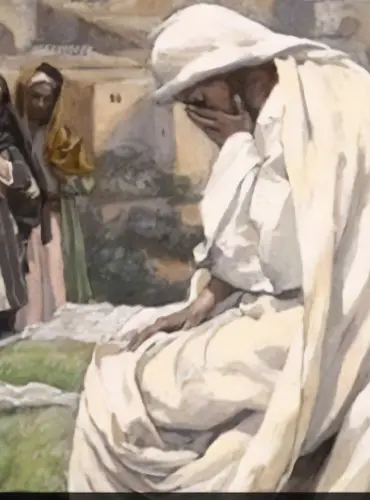Friday of the Twenty-sixth Week in Ordinary Time – Odd Years – Lk 10:13-16
Today’s readings ask us to reflect on the way we serve God; the first readings this week have all been centered on the Jews either coming back from exile, or staying in exile, which they realize was a punishment for their sins and for not obeying God’s law. In spite of all the many miracles that God worked for His people, time and again, they refused to submit to His yoke. It’s only now, through the experience of much suffering, that they become repentant, admitting: “We . . . have sinned in the Lord’s sight and disobeyed him. We have neither heeded the voice of the Lord, our God, nor followed the precepts which the Lord set before us. From the time the Lord led our ancestors out of the land of Egypt until the present day, we have been disobedient to the Lord, our God, and only too ready to disregard his voice.” That suffering, however, leads them to turn back to God.
Today’s Gospel reminds us that the stakes are very high. As Luke recalls for us, Jesus harshly rebukes the three cities that had been a special focus of His ministry: Chorazin, Bethsaida, and Capernaum. The mention of Chorazin is particularly interesting, because Jesus speaks of the “mighty deeds done in their midst,” and yet this is the only mention of that city in the Bible. There’s absolutely no reference to it in the Old or New Testaments besides this phrase from Jesus, and even the historian Josephus doesn’t speak of it. We have absolutely no idea what Jesus said or did there, but we can be sure that His listeners did. Rather than see those deeds, those miracles, as the impetus for conversion and for drawing closer to the living God, they became a source of condemnation, because those who saw them didn’t appreciate their importance or take the time to understand and be grateful.
As Christians, but especially as religious, we are to bear witness with our very lives to the “mighty deeds” that God has done for us, all the means that He has used to sanctify us, first and foremost our vocations, but also all of those hidden graces known to us alone. Sometimes, as in the case of sufferings, it’s harder to see God’s plan, but it doesn’t become for that reason any less precious or loving of a gift.
Let us remember that on Calvary there were three crosses, but only one brought salvation. It wasn’t simply suffering on the cross next to Jesus that saved, but rather being united to Him, and using that suffering as a means of expiation and a gateway to union with Christ. We can ask ourselves about the way we endure sufferings: do we accept them as part of the Cross that God sends to make us saints and so that we can intercede for sinners? Or do we complain? Also, do we thank God for everything that He sends us, no matter how bad it seems? Or do we act like spoiled children who, in spite of the greatness of the gift, reject it because they don’t like the way it’s wrapped?
Today, then, let us pray, through the intercession of Mary, Model of Holiness, for the grace of taking up our cross, accepting what God wants to send our way with docility and love for the praise and service of His Glory.





